Are You An Enabler, Codependent On A User?
ARE YOU AN ENABLER, CODEPENDENT ON A USER? THE 10 MOST COMMON REASONS (ISSUE 105)
By Diane Gold
Are you an enabler? Are you in love with or do you love someone who is in love with substance whom you help get it?
Let’s look at the term “enabler” and give it a definition so that we are all using the same meaning.
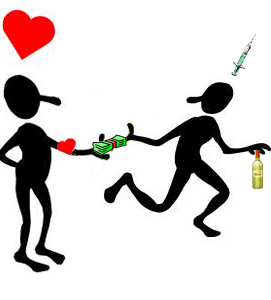 According to the dictionary, an enabler is a person who makes something possible. In the habit sense, it is a person who assists a habitual behaviorist to get her reward from some negative behavior.
According to the dictionary, an enabler is a person who makes something possible. In the habit sense, it is a person who assists a habitual behaviorist to get her reward from some negative behavior.
Many enablers don’t realize they are enabling. They are so wrapped up in another person who is wrapped up in indulging behavior that they don’t see their behavior as a habit that is hurting them both. In fact, most enablers believe they are helping the other person, blind to the dependence that obvious to others.
Almost 10 years ago, for almost 10 years, I enabled the person with whom I lived. I used my money, my credit and my organizational skills to make sure he had his drugs, his alcohol, commercial property to conduct business and a nice place to live. In my case, it was a little convoluted because I was jealous of his using drugs and alcohol without me, so I used them when I saw his use. I was codependent with a touch of substance abuse.
One of my remedies was to go into the bedroom and lock the bedroom door and put the pillow over my head until I fell asleep. VERY DIFFICULT, but effectively removing me from that situation!
Personally, I was enabling this man to use drugs and alcohol to insure my own security. I was afraid to cut the money off and say,
“No more,”
since I was not willing to see the truth, that the man with whom I lived was interested in substance before me. What made it even harder was that we were business partners. And, if I stopped facilitating the business, I would be looking for a new career. I was afraid of that change, too.
A decade later, it’s easy to see now what my motives were then and the enabling behavior that went on, the excuses I made for this man’s violence that went along with my actual forgiving, “healer” nature.
Since that time, after removing myself from the situation, I can evaluate the many stories I hear about the difficulty in saying “no” because this response causes so much emotional pressure. I can relate, and I can suggest.
TOP 10 REASONS WE GIVE OURSELVES TO MAINTAIN THE ENABLER ROLE
Here are a list of things that go on in our head that keep us enabling. Do you recognize any?:
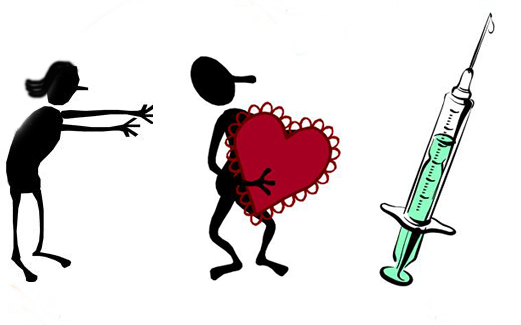 1) If I don’t give my loved one the money for her habit, she might get arrested or get shot,
1) If I don’t give my loved one the money for her habit, she might get arrested or get shot,
2) If I don’t give my loved one a ride to her dealer’s house, she will walk at night in the bad neighborhood and might get raped,
3) If I don’t give my loved one money for her habit, she won’t love me,
4) If I tell my loved one she’s overweight or stop buying her the donuts and ice cream she loves, this will hurt her feelings; so I won’t say anything,
5) If I don’t give my loved one a ride when she calls for a ride at any hour, she might get arrested walking in the street and then raped in jail,
6) If I don’t let my loved one live at my house and she gets hurt or killed on the street, it’s my fault,
7) I’m married to her, so I have to pay for her habit. After all, “to love and to cherish, in good times and bad,”
8) If I don’t give my loved one money, she might leave me,
9) Even though I know my loved one is stealing money from me, I won’t say anything because she might hit me or hurt our child.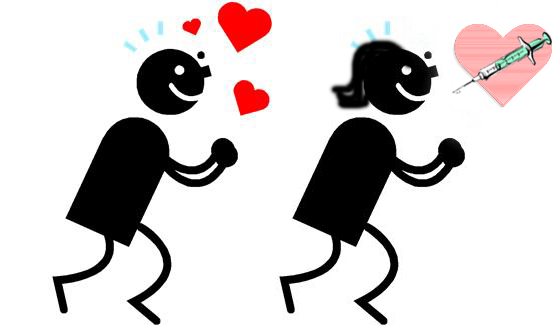
10) My loved one came to me and trusted me with her substance problem so I have to give her money for drugs because I can’t betray her trust.
BEING BRAVE
 In the same way that some cultures send a young person out to prove adulthood, we must allow our loved ones to fend for themselves or work on themselves, or they will never prove themselves to themselves. If we want to save ourselves, we must, in turn, remove the magnetic pull they have on us and let go, if we are to find our own way.
In the same way that some cultures send a young person out to prove adulthood, we must allow our loved ones to fend for themselves or work on themselves, or they will never prove themselves to themselves. If we want to save ourselves, we must, in turn, remove the magnetic pull they have on us and let go, if we are to find our own way.
Letting go doesn’t mean not see our loved one, necessarily, but it does mean take hold of our behavior and put down our enabler role. We must be massively brave and courageous to do it, since all sorts of emotions pull at us to enable and we can’t fathom not seeing our loved one.
In more cases than not, it may be necessary to limit the times we see our loved one while we are working on ourselves and the loved one is working on herself. Because we are adults, we don’t get supervised visits, but that may be what we need. It’s the same as when we are stopping abusing alcohol or drugs. Many of us have to avoid going places that serve alcohol or market drugs. We may, in the future, choose to be in places with alcohol, although we may choose never again to be in places that market drugs. Until we are more evolved in the process, and our habit is replaced with another, we may need to plan where not to go. I can vouch for the benefits of this separation!
CONCLUSION
Being an enabler can be borne out of wanting to help, which is a natural human feeling. It usually comes from some type of insecurity as does the craving behaviors, themselves. Many of us feel a calling to ease the pain of others. It goes too far when we get lost in someone else’s negative behavior to the point where we stop our own progress and hurt the person we are attempting to help.
We are not alone, and being codependent is not shameful. When we see our behavior clearly, we can change our habit and be happier.
ACTION STEPS, INSTEAD OF ENABLING
Here are some action steps we can take instead of continuing the codependent behaviors we usually do.
1) Keep no money in the house, so that, when asked, you can say you don’t have any money. This solution precedes the direct “no” response which you may have to work up to. This is a step of blind faith that you will survive saying “no.” I can vouch for it. You will survive it!
2) When your someone asks you to come with your car to get her at an inconvenient or inappropriate time, you can say you are sleeping and end the call. You know your person is safe, more or less, since you have just heard from her. Your person will find a way home.
The first time is the hardest because all those feelings of responsibility for harm come up. I can vouch for it. You can do it!
3) Seek a support group, either online which is immediate, or at a group location. It helps to listen to others in similar situations. Or confide in a support person, and say you have discovered you are an enabler. If it’s a friend, do not let the friend talk you out of your realization. Here’s an interesting online option: http://www.smartrecovery.org/resources/family.htm
![]()
WORK WITH US
If you would like to set up a consult or ask a question about your situation, please go to our Contact Us page. Even if you are confused about your situation, you are welcome to reach out here. Please include the best time to contact you.
![]()
SUGGESTED READING
I do not prefer the 12-step program that is mentioned in the recommended article below. However, the eloquence with which this writer orates is reason enough to read the passage. Please start with the words,
“Over the last 28 years,”
if you wish to avoid another statement with which I take issue.
http://the12stepbuddhist.com/codependent-once-more/
FEEDBACK
Please leave a comment and LIKE.
DIANE GOLD, AUTHOR
Diane Gold, Founder of Warriors of Weight, Turning Habits Into Health, is a mentor in tai chi, kung fu and meditation, a music, fitness and stress expert, dedicated mom, studying plant-based nutrition and habit change.
A lot of her topics deal with personal development and self-evaluation and the fact that all habits take different shape. She says,
“One of the hardest habits to spot is that of being an enabler. All we know is that we have a loved one and that we want to heal the loved one. Enablers get so caught up in another person’s life that they forget that they cannot fix another person. Only we can fix ourselves.
“It takes courage to look in the mirror when that means admitting we might have a habit that needs replacing. Most of the time, we have a little voice on our shoulder that has told us something is not right. And most of the time, if we are lucky enough to be free, we can get some support to replace our old habit with a new one.
“In order to see ourselves, we usually have to step back. Then, we can follow some simple steps which are different from the old steps we took a moment ago. Being codependent is no one’s fault, and no one’s to blame for developing the enabler habit. If we see it in ourselves and really want to help our loved one, it might be time to replace it.”

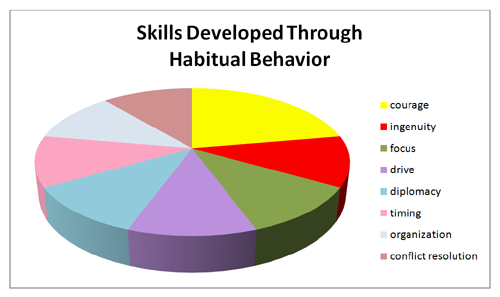
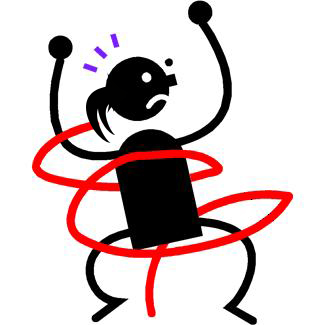 Let’s define habitual behavior as a pattern of action that follows an emotional and/or physical craving that leads to some type of internal intake or ingestion, tick, movement, series of actions, that takes place several times a day, once daily or several times a week, and that, when removed without replacement, causes psychic or physical reaction that can be severely painful. When we change the habit, we actively divert our own attention from the expectation of the old reward we couldn’t live without using the same skill set we created in developing the original habitual behavior; this is how we form a new one.
Let’s define habitual behavior as a pattern of action that follows an emotional and/or physical craving that leads to some type of internal intake or ingestion, tick, movement, series of actions, that takes place several times a day, once daily or several times a week, and that, when removed without replacement, causes psychic or physical reaction that can be severely painful. When we change the habit, we actively divert our own attention from the expectation of the old reward we couldn’t live without using the same skill set we created in developing the original habitual behavior; this is how we form a new one.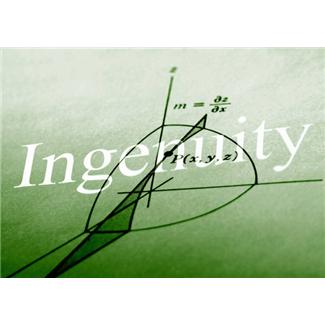 we have ingenuity enough to have devised a way to live with our habitual behavior in our lives,
we have ingenuity enough to have devised a way to live with our habitual behavior in our lives,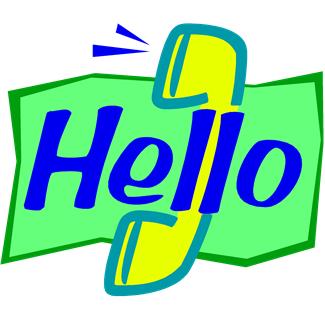
 Most of the time, we develop habitual behavior because we experience grief, anger or limited self-esteem. These can come from abuse, crisis, death, sickness and whatever our mind conjures, since feelings are irrational and show up when they show up. Since we have a myriad of valuable skills from our habitual behavior, we are worthy, since worth is calculated by our collection of respectable, attention-getting skills.
Most of the time, we develop habitual behavior because we experience grief, anger or limited self-esteem. These can come from abuse, crisis, death, sickness and whatever our mind conjures, since feelings are irrational and show up when they show up. Since we have a myriad of valuable skills from our habitual behavior, we are worthy, since worth is calculated by our collection of respectable, attention-getting skills.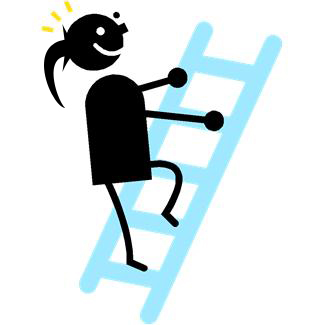
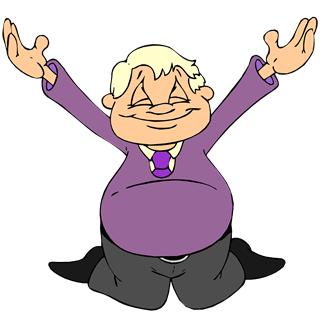
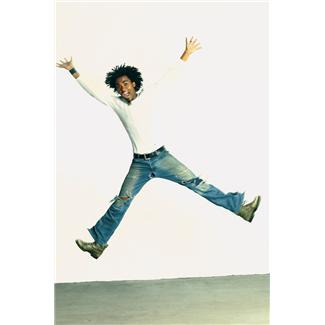 The habit of gratitude can be an acquired taste. Some of us naturally feel love and happiness with each positive occurrence. We also may have the temperance to quell the urge for revenge in negative events. Others of us train ourselves to jump-start the love through various means, even though we get angry. And then there are most of us who can develop this habit through the study of philosophy, through the inspiration of a teacher, the appreciation for a second chance or the lessons that experience brings.
The habit of gratitude can be an acquired taste. Some of us naturally feel love and happiness with each positive occurrence. We also may have the temperance to quell the urge for revenge in negative events. Others of us train ourselves to jump-start the love through various means, even though we get angry. And then there are most of us who can develop this habit through the study of philosophy, through the inspiration of a teacher, the appreciation for a second chance or the lessons that experience brings.
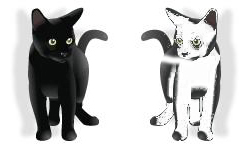 5) What about a friend’s offering the very thing you wished for without your having to ask? This happened to me when my close friend suggested my pets could stay with her while I traveled. If you’ve ever had a pet, you know how important it is to feel secure with the people who are taking care of them.
5) What about a friend’s offering the very thing you wished for without your having to ask? This happened to me when my close friend suggested my pets could stay with her while I traveled. If you’ve ever had a pet, you know how important it is to feel secure with the people who are taking care of them.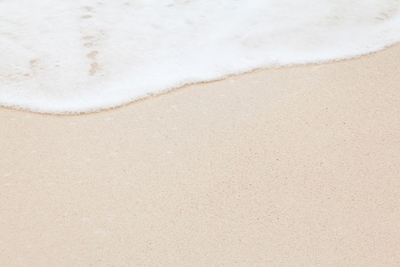 13) How about going to the beach and smelling that delicious salt smell? It is healing. wonderful and a big gift.
13) How about going to the beach and smelling that delicious salt smell? It is healing. wonderful and a big gift.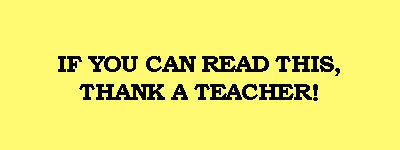 There used to be a sign in the NYC subway that said,
There used to be a sign in the NYC subway that said,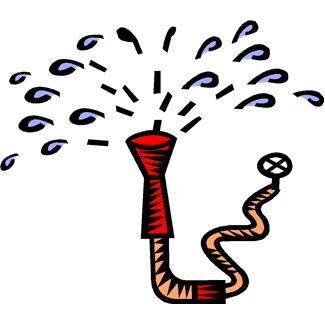 23) What about having running water? Now that I have an awareness of how many people go to the river or water location daily to get water for the house, I am super grateful. I also know that 783 million do not have access to clean water; many are bringing home contaminated water. I also know that, if we reduced our bottled water intake by 1/3, we could fund a project to fix the dirty water issue.
23) What about having running water? Now that I have an awareness of how many people go to the river or water location daily to get water for the house, I am super grateful. I also know that 783 million do not have access to clean water; many are bringing home contaminated water. I also know that, if we reduced our bottled water intake by 1/3, we could fund a project to fix the dirty water issue.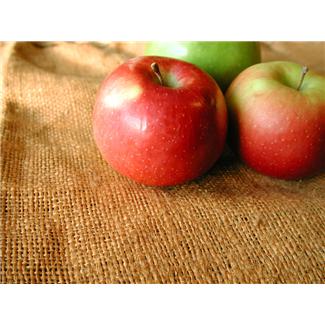 28) How about the way a food or drink calms the spirit from tension or anxiety? I’m remembering mouthwatering organic apple cider that hit the spot after one of those awful medical tests last week. It calmed my system but mostly my mind. It was like magic elixir to take away the psychological trauma from the sounds of a magnetic imaging machine.
28) How about the way a food or drink calms the spirit from tension or anxiety? I’m remembering mouthwatering organic apple cider that hit the spot after one of those awful medical tests last week. It calmed my system but mostly my mind. It was like magic elixir to take away the psychological trauma from the sounds of a magnetic imaging machine. 35) Not making too many mistakes when playing the piano recital.
35) Not making too many mistakes when playing the piano recital. 63) Living within 2 minutes of the ocean.
63) Living within 2 minutes of the ocean.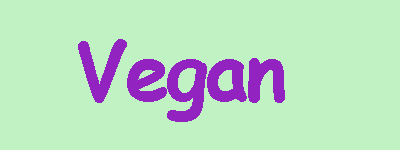 74) Having the locational and financial opportunity to be vegan.
74) Having the locational and financial opportunity to be vegan.
 We are often not aware of sickness habits or wellness habits. For the most part, when we’re sick, we are consumed with feeling sick. Hopefully, you can’t relate to this feeling, but most of us can and do. And when we are well, we are not thinking about sickness.
We are often not aware of sickness habits or wellness habits. For the most part, when we’re sick, we are consumed with feeling sick. Hopefully, you can’t relate to this feeling, but most of us can and do. And when we are well, we are not thinking about sickness. So far, the only times I have been sick have happened in the past couple of years since I turned 60. And both times, my “specialist” physicians could give me no definitive cause for what I was feeling. That did prompt me to pine for a non-fiction version of Dr. House, MD, the TV series diagnostician, extraordinaire and gave me a bit of anxiety. I even wrote an article about it which you can access at the end of this article.
So far, the only times I have been sick have happened in the past couple of years since I turned 60. And both times, my “specialist” physicians could give me no definitive cause for what I was feeling. That did prompt me to pine for a non-fiction version of Dr. House, MD, the TV series diagnostician, extraordinaire and gave me a bit of anxiety. I even wrote an article about it which you can access at the end of this article.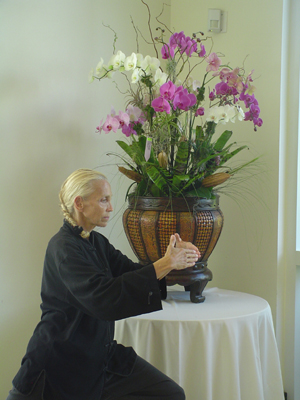 What I realized immediately was that the position of the proposed 48-hour position of the head was the suspended head position we teach in tai chi that brings stability to the region, allows the most oxygen to freely flow to the lungs, taxes the neck less than any other position and allows the most alertness and focus. It maintains tai chi principle by keeping the bones and body in proper alignment. It turns out it also helps to alleviate dizziness.
What I realized immediately was that the position of the proposed 48-hour position of the head was the suspended head position we teach in tai chi that brings stability to the region, allows the most oxygen to freely flow to the lungs, taxes the neck less than any other position and allows the most alertness and focus. It maintains tai chi principle by keeping the bones and body in proper alignment. It turns out it also helps to alleviate dizziness.
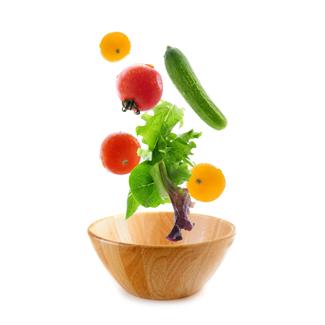 When we are sick, we may be nauseated, and we may not feel hungry. If we don’t eat, unfortunately, we will deplete our body nutrients.
When we are sick, we may be nauseated, and we may not feel hungry. If we don’t eat, unfortunately, we will deplete our body nutrients.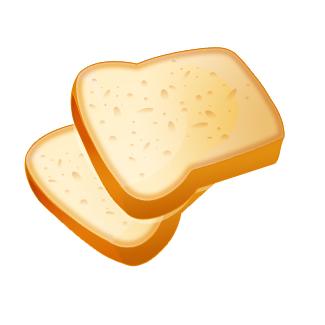
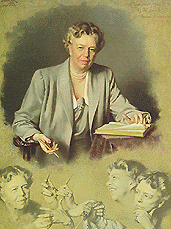 1)
1) 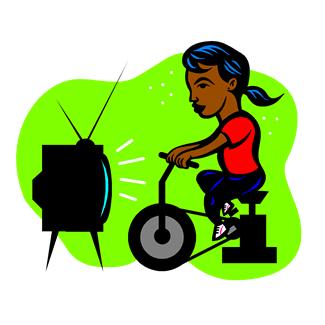 May we all have more healthy days than sick, and may we take responsibility for turning sickness into health.
May we all have more healthy days than sick, and may we take responsibility for turning sickness into health.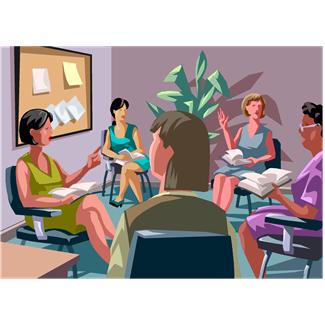
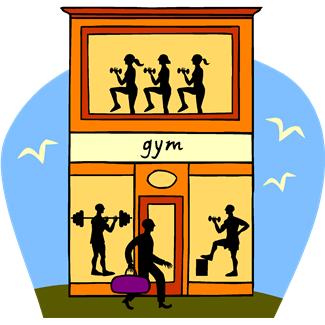 When thinking about social influence and habit change, I think of doing physical fitness like tai chi, going to the gym, going to a weight watch group, going to a rehab center. The function of each of these group activities is motivation of some kind. Let’s look at how the group motivates us.
When thinking about social influence and habit change, I think of doing physical fitness like tai chi, going to the gym, going to a weight watch group, going to a rehab center. The function of each of these group activities is motivation of some kind. Let’s look at how the group motivates us.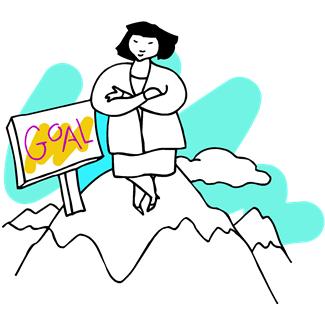 When we look at the amount of people who go back to their old habits after six months, a year, five years; it can be disheartening. There’s an interesting statistical article from 2004 about how treatment doesn’t work at:
When we look at the amount of people who go back to their old habits after six months, a year, five years; it can be disheartening. There’s an interesting statistical article from 2004 about how treatment doesn’t work at: People think tai chi is for exercise or defense, alone. It’s really for perception change. By doing a powerful exercise as tai chi is, we learn a systematic approach to movement. This system gives us tools to use in everyday life. As we acquire the patience to endure tremendous body exertion, we are learning a tool that works with anything in life. We have the understanding to know that the physical exertion and mental concentration needed to physically execute the movement is teaching us to follow through. And it is showing us we can do it.
People think tai chi is for exercise or defense, alone. It’s really for perception change. By doing a powerful exercise as tai chi is, we learn a systematic approach to movement. This system gives us tools to use in everyday life. As we acquire the patience to endure tremendous body exertion, we are learning a tool that works with anything in life. We have the understanding to know that the physical exertion and mental concentration needed to physically execute the movement is teaching us to follow through. And it is showing us we can do it. It’s the same if we surround ourselves with people who do not take drugs or drink or overeat or gamble. We will be more likely to accept behaving in a similar fashion, especially if they know we are working on habit change. If we keep repeating a new behavior in place of the old habit at the same time as building a personal foundation, we will succeed. And what’s missing at the start will no longer be missing. We will have developed, not only new behaviors, but a structure within ourselves that will sustain the way we wish to live.
It’s the same if we surround ourselves with people who do not take drugs or drink or overeat or gamble. We will be more likely to accept behaving in a similar fashion, especially if they know we are working on habit change. If we keep repeating a new behavior in place of the old habit at the same time as building a personal foundation, we will succeed. And what’s missing at the start will no longer be missing. We will have developed, not only new behaviors, but a structure within ourselves that will sustain the way we wish to live.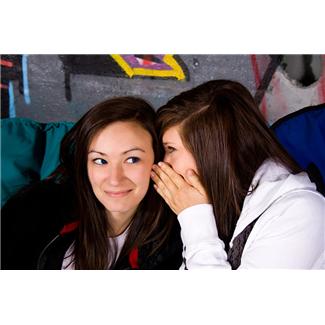 There is one secret to habit change. We don’t need to be college-educated to understand it. We don’t have to have been brought up in a wealthy home to use it. It is the same in every country. It applies to every habit. We all know the concept as it applies to daily life. Yet, it’s still a secret.
There is one secret to habit change. We don’t need to be college-educated to understand it. We don’t have to have been brought up in a wealthy home to use it. It is the same in every country. It applies to every habit. We all know the concept as it applies to daily life. Yet, it’s still a secret.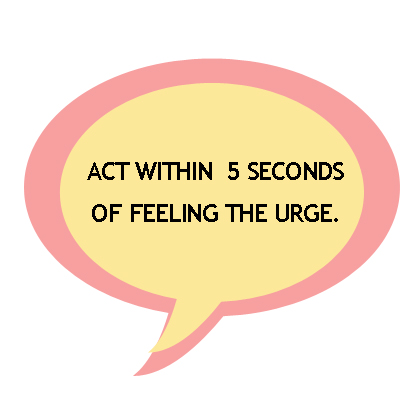 In order to hear it, we must be ready at this very moment to realize its truth; and that if we don’t make it a priority in our lives, we will go another way. Easiest is best, and that’s upon what this secret is based.
In order to hear it, we must be ready at this very moment to realize its truth; and that if we don’t make it a priority in our lives, we will go another way. Easiest is best, and that’s upon what this secret is based. Picture the situation where we get an urge to eat cake. We are on a strict regimen not to include cake in our food plan. If we don’t act with instant motion within five seconds of the urge, we have already given ourselves time enough to plan which way we will walk to the cake store, passing an Automatic Teller Machine along the way, since we keep no cash with us to avoid running out to buy food. Oops, we forgot about the ATM card. Or figuring out how to run up an account with the local grocer if we have no cash, if we have remembered not to have an ATM card around.
Picture the situation where we get an urge to eat cake. We are on a strict regimen not to include cake in our food plan. If we don’t act with instant motion within five seconds of the urge, we have already given ourselves time enough to plan which way we will walk to the cake store, passing an Automatic Teller Machine along the way, since we keep no cash with us to avoid running out to buy food. Oops, we forgot about the ATM card. Or figuring out how to run up an account with the local grocer if we have no cash, if we have remembered not to have an ATM card around.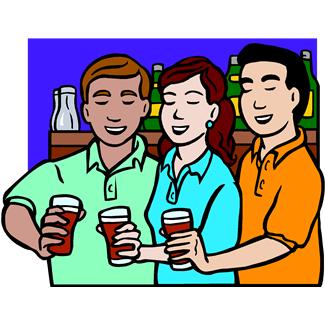 Imagine it’s the end of the work day, we are closing up our store and start getting the urge to join all our buddies across the street and drink alcohol. Yet, we know, at this time, we have decided to abstain from alcohol because it does not support us. So, when we feel that craving, we have a choice: we can act within 5 seconds and take a new action that does not involve alcohol OR wait and go drink alcohol, a behavior we already know is not working for us. If the people at the pub are really our buddies, we will see them later, not in the bar.
Imagine it’s the end of the work day, we are closing up our store and start getting the urge to join all our buddies across the street and drink alcohol. Yet, we know, at this time, we have decided to abstain from alcohol because it does not support us. So, when we feel that craving, we have a choice: we can act within 5 seconds and take a new action that does not involve alcohol OR wait and go drink alcohol, a behavior we already know is not working for us. If the people at the pub are really our buddies, we will see them later, not in the bar.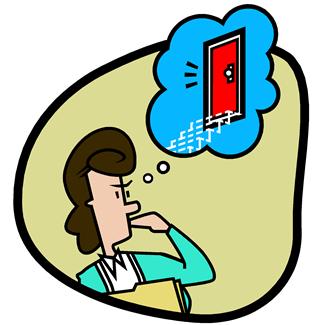 We have a very short window of opportunity in which to execute the one secret to habit change. It’s usually in that five second range that we must act. If we don’t take a new action within that time, we will habitually do our old behavior. And changing our habit will wait on the sidelines another day.
We have a very short window of opportunity in which to execute the one secret to habit change. It’s usually in that five second range that we must act. If we don’t take a new action within that time, we will habitually do our old behavior. And changing our habit will wait on the sidelines another day.
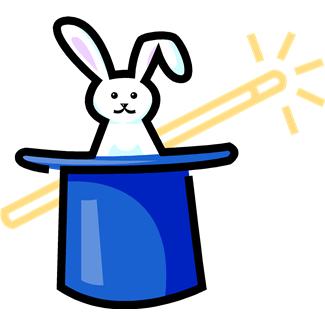 Do it. It is massively impactful, requires little activity, not much effort other than the effort of doing magic on or tricking one’s own mind. And it works on all the urges to a large degree.
Do it. It is massively impactful, requires little activity, not much effort other than the effort of doing magic on or tricking one’s own mind. And it works on all the urges to a large degree.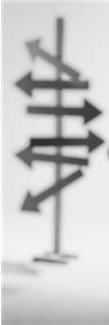
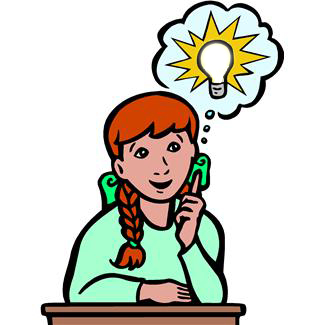 When learning to change a habit, looking too far ahead is usually a deal breaker. If we are looking at the end result, meaning that we changed our habit; it may look vast, overwhelming, impossible, certainly difficult that it’s quitting time, quitting the process of change, that is.
When learning to change a habit, looking too far ahead is usually a deal breaker. If we are looking at the end result, meaning that we changed our habit; it may look vast, overwhelming, impossible, certainly difficult that it’s quitting time, quitting the process of change, that is.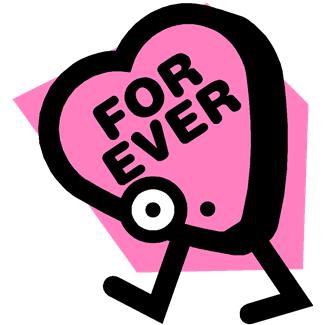 When we decide we will change a habit forever, we are locking ourselves in a prison. To give up an old behavior is not as difficult if we tell ourselves that we might be able to go back to it at some point in the future. It makes it easier to start, and it is not as scary a process. Change A Habit For Today, Not Forever
When we decide we will change a habit forever, we are locking ourselves in a prison. To give up an old behavior is not as difficult if we tell ourselves that we might be able to go back to it at some point in the future. It makes it easier to start, and it is not as scary a process. Change A Habit For Today, Not Forever How many times have we thought we had ourselves together, and we stopped behaving in the way that was working for us? We had changed our habit so long ago that we thought we could stop the technique that got us to change the habit?
How many times have we thought we had ourselves together, and we stopped behaving in the way that was working for us? We had changed our habit so long ago that we thought we could stop the technique that got us to change the habit?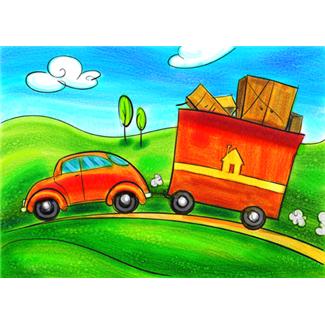
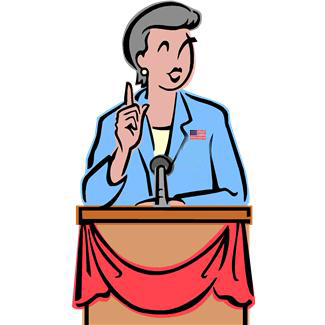 Imagine a U.S. Senator whose family members all speak street language. She was the only member of the family to go to school. She was raised on “ain’t,” “anyways,” “nucular energy,” “athalete,” “asterik,” “supposubly,” “mischieveeous.” She goes to visit her original home for a week and her entire family speaks their normal street speak to her or with her. Then she comes back to D.C.
Imagine a U.S. Senator whose family members all speak street language. She was the only member of the family to go to school. She was raised on “ain’t,” “anyways,” “nucular energy,” “athalete,” “asterik,” “supposubly,” “mischieveeous.” She goes to visit her original home for a week and her entire family speaks their normal street speak to her or with her. Then she comes back to D.C.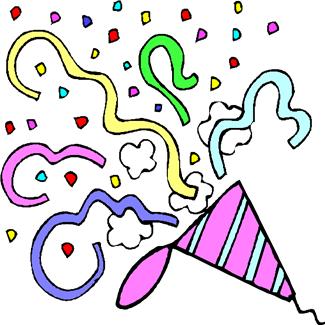 Once we have accomplished doing the new action and have a routine going that includes the new behavior, we can rejoice in the fact that we have begun to change the habit and that we had the power to start. If we forget to be joyful which includes acknowledging ourselves for changing, we are missing out on the joy that can sustain the new behavior.
Once we have accomplished doing the new action and have a routine going that includes the new behavior, we can rejoice in the fact that we have begun to change the habit and that we had the power to start. If we forget to be joyful which includes acknowledging ourselves for changing, we are missing out on the joy that can sustain the new behavior.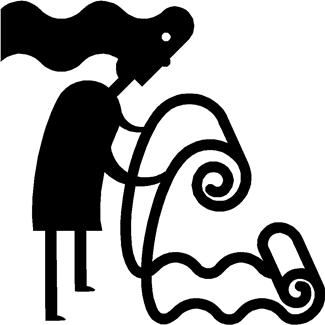
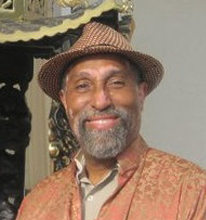
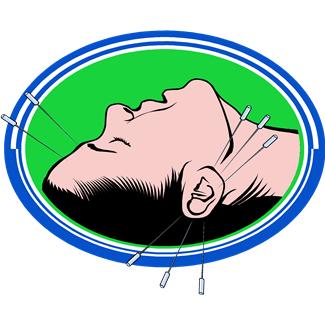 … we look at acupuncture, and we perceive that acupuncture is Chinese Medicine. Acupuncture is only one tool in a tool kit that contains at least 14 different tools. The number one tool is the understanding that blood and energy flow together. … The reason people get sick is that blood and chi become stuck or stagnant.
… we look at acupuncture, and we perceive that acupuncture is Chinese Medicine. Acupuncture is only one tool in a tool kit that contains at least 14 different tools. The number one tool is the understanding that blood and energy flow together. … The reason people get sick is that blood and chi become stuck or stagnant.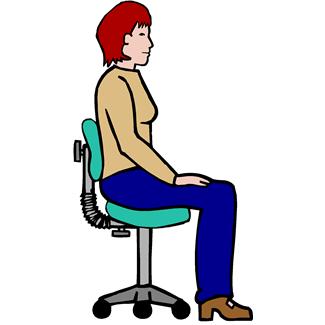 If you see somebody sitting in a chair and they’re slumped over, you say,
If you see somebody sitting in a chair and they’re slumped over, you say,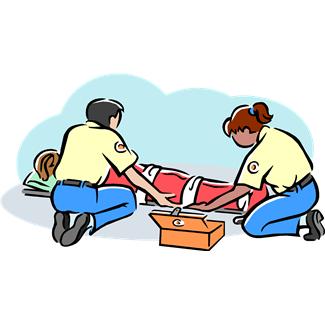

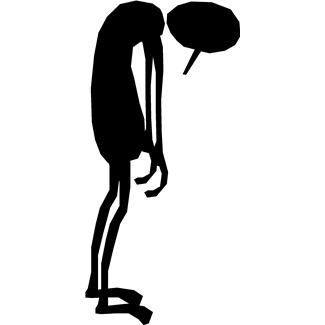 Insufficiency would be not enough love, not enough laughter, not enough relaxation, not enough exercise, not enough water. That would be insufficiency.
Insufficiency would be not enough love, not enough laughter, not enough relaxation, not enough exercise, not enough water. That would be insufficiency.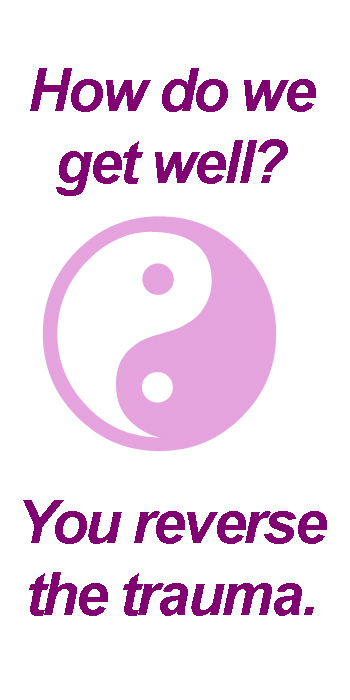
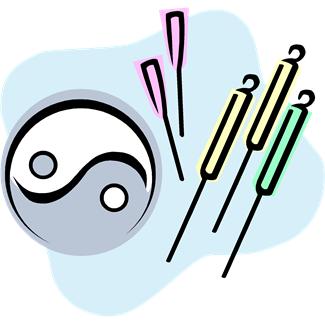
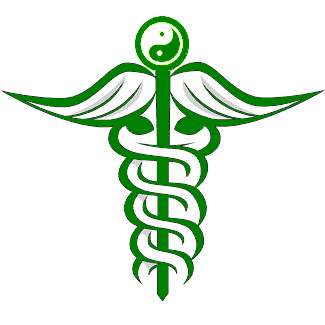 Absolutely right. And many people don’t even know the word acupuncture…
Absolutely right. And many people don’t even know the word acupuncture…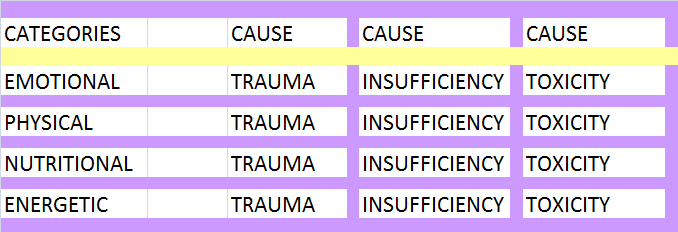
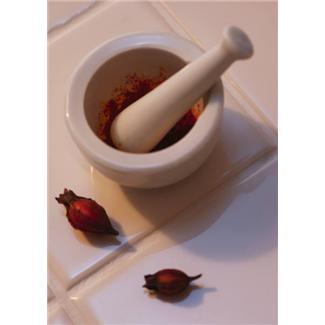 We now have a transparent way of looking at Traditional Chinese Medicine. It is not a mystery any longer. Our interview guest, Doctor Of Oriental Medicine has demystified it. He has talked about how to diagnose by asking, not only why you are there, but who is giving you pain. He mentioned how many tools there are in the arsenal of Chinese Medicine.
We now have a transparent way of looking at Traditional Chinese Medicine. It is not a mystery any longer. Our interview guest, Doctor Of Oriental Medicine has demystified it. He has talked about how to diagnose by asking, not only why you are there, but who is giving you pain. He mentioned how many tools there are in the arsenal of Chinese Medicine.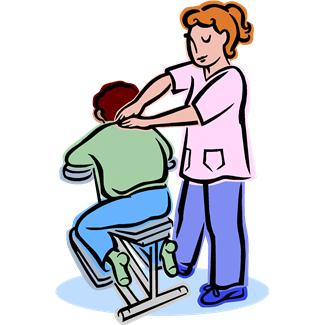
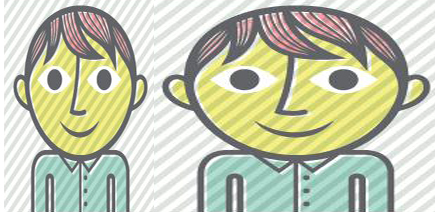 On September 5, a new study came out in the journal, Science, where germ-free mice were colonized with gut microbes (called “microbiota” in the study itself) from four pair of human twins. Each pair of twin donors contained one obese and one thin human. The recipients of the fecal matter were sterile mice who had no gut microbes until they were exposed to the human microbes.
On September 5, a new study came out in the journal, Science, where germ-free mice were colonized with gut microbes (called “microbiota” in the study itself) from four pair of human twins. Each pair of twin donors contained one obese and one thin human. The recipients of the fecal matter were sterile mice who had no gut microbes until they were exposed to the human microbes.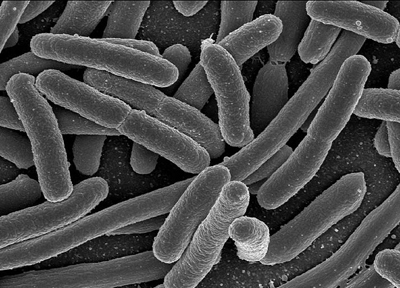
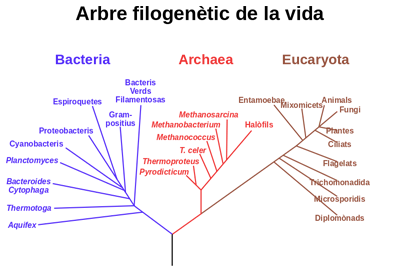


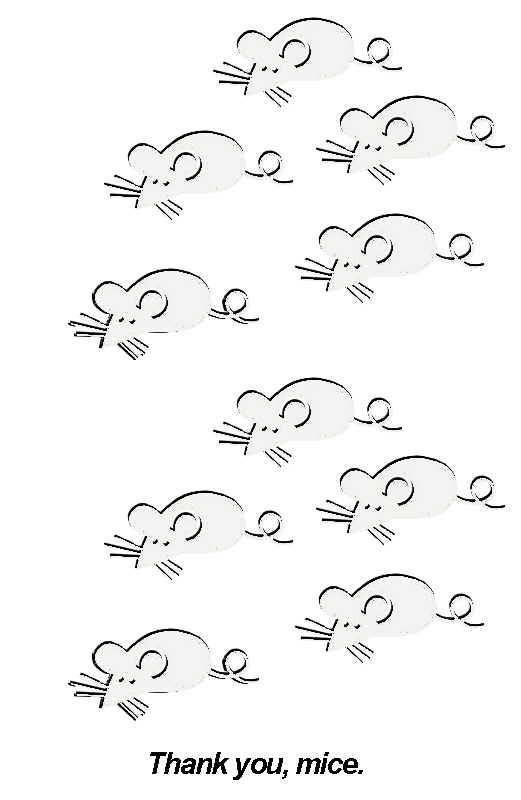
 “My research on forgiveness has led me to this unsettling conclusion: The desire for revenge isn’t a disease that afflicts a few unfortunate people; rather it’s a universal trait of human nature, crafted by natural selection, that exists today because it helped our ancestors adapt to their environment.
“My research on forgiveness has led me to this unsettling conclusion: The desire for revenge isn’t a disease that afflicts a few unfortunate people; rather it’s a universal trait of human nature, crafted by natural selection, that exists today because it helped our ancestors adapt to their environment. Since we, as humans, are social; we have developed a code of mores that define what is and is not acceptable reaction to various actions. We have laws that help regulate our actions, as well.
Since we, as humans, are social; we have developed a code of mores that define what is and is not acceptable reaction to various actions. We have laws that help regulate our actions, as well.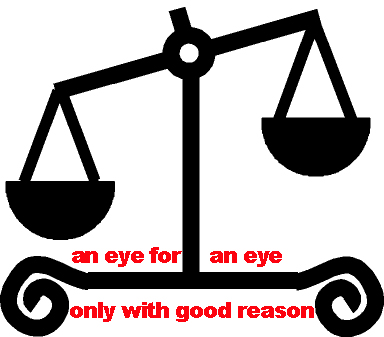
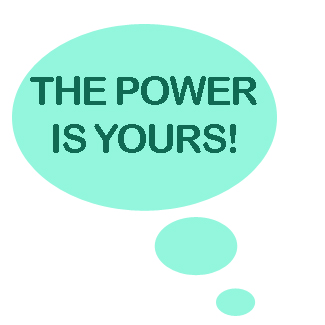
 “No! It’s in us for survival reasons. As humans with high thought process, we CAN realize when revenge is for survival and when it’s only for ego. We can temper ourselves. That’s why I equate forgiveness and revenge with any habit of substance, emotion, gambling or ice cream; it will always be there, but doesn’t always require an action.
“No! It’s in us for survival reasons. As humans with high thought process, we CAN realize when revenge is for survival and when it’s only for ego. We can temper ourselves. That’s why I equate forgiveness and revenge with any habit of substance, emotion, gambling or ice cream; it will always be there, but doesn’t always require an action.





